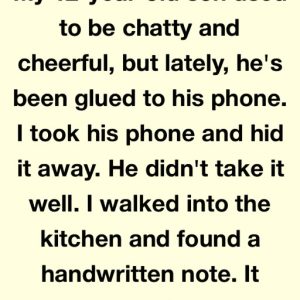**12 Signs of Low Blood Sugar (Hypoglycemia) You Should Never Ignore**
Low blood sugar—known medically as **hypoglycemia**—happens when your body’s glucose levels drop below what it needs to function properly. Although most common among people with diabetes, *anyone* can experience low blood sugar under the right conditions: skipping meals, intense exercise, stress, certain medications, alcohol use, or underlying medical issues.
Recognizing the signs early can prevent symptoms from becoming dangerous. Here are **12 warning signs** that your blood sugar may be too low.
—
## **1. Sudden Shakiness or Trembling**
One of the earliest and most common symptoms.
Your body releases adrenaline when sugar drops, causing shaking in the hands, arms, or body.
—
## **2. Sweating (Especially Cold Sweats)**
Even if you’re not hot or active, sweating can occur suddenly.
It’s a biological alarm bell from your nervous system: something is off.
—
## **3. Intense Hunger**
A powerful, urgent hunger—even if you recently ate—can signal low blood sugar.
Your brain is telling you it needs fuel **now**.
—
## **4. Dizziness or Lightheadedness**
When the brain doesn’t get enough glucose, balance and clarity suffer.
You may feel like you’re going to faint.
—
## **5. Rapid Heartbeat**
The body tries to compensate for dropping glucose by increasing adrenaline, which speeds up heart rate.
—
## **6. Irritability or Mood Swings**
Many people describe this as suddenly feeling *snappy*, emotional, or frustrated for no clear reason.
Sometimes called being “hangry.”
—
## **7. Headaches**
Low glucose can cause tension-like headaches or migraines, often accompanied by fatigue.
—
## **8. Blurry Vision**
When blood sugar falls, eyesight may become fuzzy or double.
Your brain has trouble processing visual information without enough fuel.
—
## **9. Confusion or Difficulty Concentrating**
Low blood sugar directly affects brain function.
You may lose your train of thought, forget simple tasks, or feel mentally “foggy.”
—
## **10. Weakness or Fatigue**
Without glucose, your muscles lose energy.
Even small tasks can feel draining or exhausting.
—
## **11. Tingling or Numbness Around the Mouth**
A less common but distinct symptom.
You might feel pins-and-needles sensations around the lips or tongue.
—
## **12. Loss of Coordination**
In more severe dips, you may stumble, have trouble holding objects, or feel like your body isn’t responding properly.
—
# **When Low Blood Sugar Becomes an Emergency**
If levels drop too low, hypoglycemia can lead to:
* Confusion or disorientation
* Seizures
* Unconsciousness
* Coma
This **requires immediate medical attention**.
—
# **What to Do If You Suspect Low Blood Sugar**
Follow the **15-15 rule**:
* Eat **15 grams** of fast-acting carbohydrates:
* ½ cup juice
* Regular soda (not diet)
* Glucose tablets
* Honey
* Hard candy
* Wait **15 minutes** and recheck symptoms.
Repeat if necessary.
If symptoms do not improve, seek emergency help.
—
# **Can Low Blood Sugar Be Prevented?**
Yes. These habits help reduce risk:
* Eat meals and snacks consistently
* Avoid skipping breakfast
* Balance meals with protein, fiber, and complex carbohydrates
* Monitor blood sugar if you have diabetes
* Keep fast-acting carbs on hand
* Limit alcohol on an empty stomach
* Manage exercise and medication timing
—
# **Bottom Line**
Low blood sugar can be mild, but it can also turn dangerous quickly.
Understanding the **12 warning signs** gives you the power to take action early—protecting your health and preventing complications.
If you frequently experience low blood sugar, talk with a healthcare provider. It could indicate a need for medication adjustments, dietary changes, or further testing.





